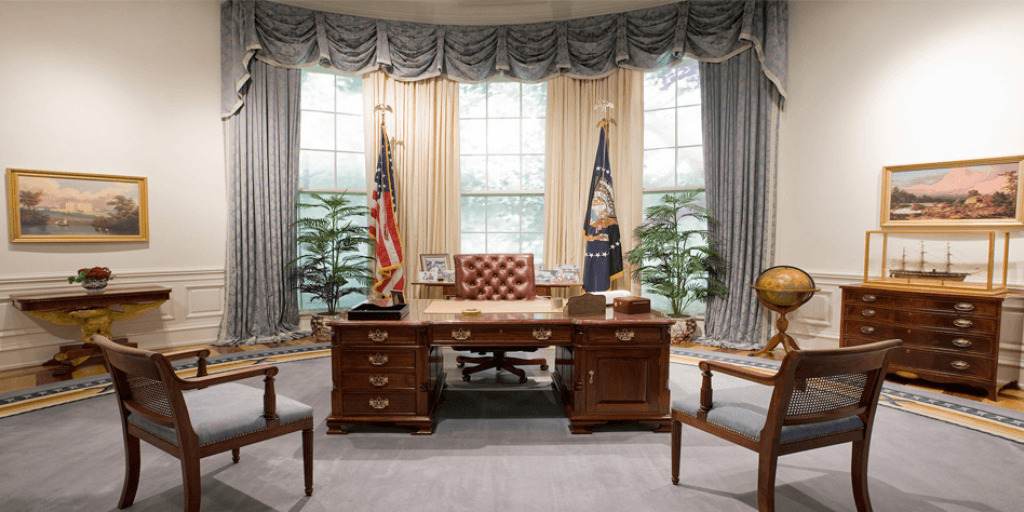
Should A Muslim Be President of the United States?
Responding to a question on NBC’s Meet the Press, presidential candidate Dr. Ben Carson raised controversy with his statement, “I would not advocate that we put a Muslim in charge of this nation. I absolutely would not agree with that.” Is Carson’s perspective correct? What is the Christian perspective on this matter?
Candidate Carson upset many American Muslims by suggesting that Islam is not compatible with the U.S. Constitution. “Mr. Carson clearly does not understand or care about the Constitution, which states that ‘no religious test shall ever be required as a qualification to any office,’” said Nihad Awad, National Executive Director for the Council on American-Islamic Relations.
Indeed, the U.S. Constitution does not forbid Muslims—or members of any religion—from serving in political office. Muslim convert Keith Ellison, representing Minnesota’s Fifth Congressional district, is a firm advocate of Muslim participation in American politics, saying, “I hope people in the Muslim community run for office, and I hope that they vote.” From Ellison’s perspective, a Muslim can work the American political system just as well as anyone else.
Yet there are Muslims who agree with Carson that no Muslim should be President, albeit for very different reasons. Much of the present violence in the Middle East has at its heart the premise that secular “Western” government is not legitimate. Consider these words from the late Osama bin Laden’s “Letter to America,” in which he said of that nation, “You are the nation who, rather than ruling by the Shariah of Allah in its Constitution and Laws, choose to invent your own laws as you will and desire. You separate religion from your policies, contradicting the pure nature which affirms Absolute Authority to the Lord and your Creator.… You are a nation that permits the production, trading and usage of intoxicants. You also permit drugs, and only forbid the trade of them, even though your nation is the largest consumer of them. You are a nation that permits acts of immorality, and you consider them to be pillars of personal freedom.”
What about an officeholder who may identify as Muslim while holding views most Muslims would reject, such as Ellison’s “pro-choice” position on abortion and his support of same-sex marriage? Like many other Muslims, Ellison rejects the militancy of the ISIS insurgency, calling the group “as Islamic as the Ku Klux Klan is Christian.” Yet, even among those who reject the Islamic State, many serious Muslims believe “no accommodation is possible between Shariah and the American Constitution,” as Wall Street Journal writer James Taranto noted. At the very least, Muslim elected officials governing under the U.S. Constitution must be comfortable upholding a secular law that may at times contradict Islamic law. It is thus easy to see how a strict Muslim could wonder about the legitimacy of a “Muslim” leader whose job requires the acceptance of values and practices that the Quran and Islamic hadiths utterly reject.
But let us take Carson’s statement a step further. The President of the U.S. is also the Commander-in-Chief, the head of the nation’s armed forces. Yet Jesus Christ gave a very specific instruction: “My Kingdom is not of this world. If My Kingdom were of this world, My servants would fight” (John 18:36). Indeed, Christians have their “citizenship” in heaven (Philippians 3:20). Awaiting the return of their own “Commander-in-Chief”—Jesus Christ—it is not their place to lead some other army. Christians are “ambassadors for Christ” (2 Corinthians 5:20). As such, they are to obey the laws of their host countries as fully as possible without violating God’s law (Romans 13:1–2). But how could Christians authorize the deployment of armies and weapons abroad, to kill both Christians and non-Christians alike, when their Savior has told them to “turn the other cheek” (Luke 6:27–29)?
Muslims must decide among themselves whether or not a Muslim can appropriately serve as President of the United States. As for Christians, the words of Christ and Scripture are clear. To learn more, read our important article, “How Would Jesus Vote for President?” and order our inspiring booklet, The World Ahead: What Will It Be Like?
Stay up to date with our Weekly Digest Email!
Tomorrow's World ComMentary Podcast
Subscribe to Tomorrow's World Commentary podcasts on iTunes and Google Play!



